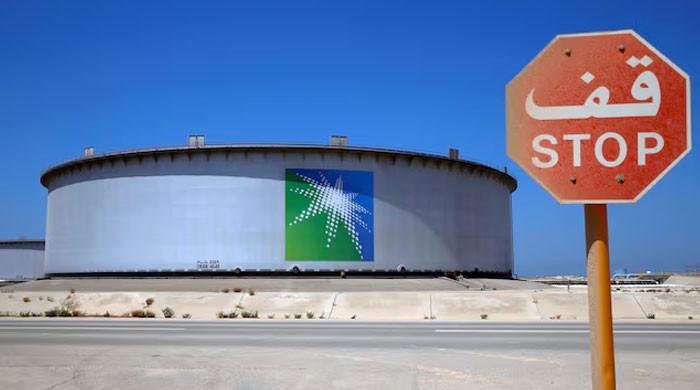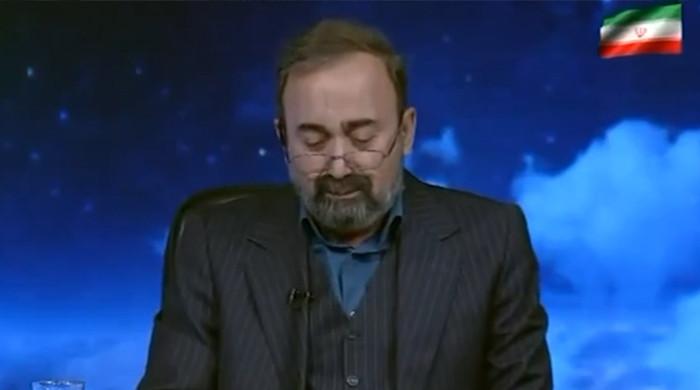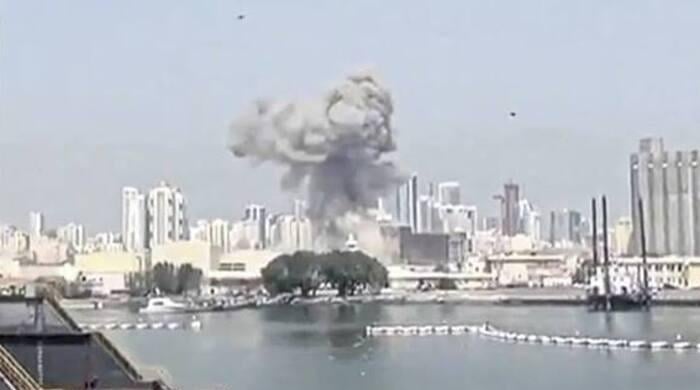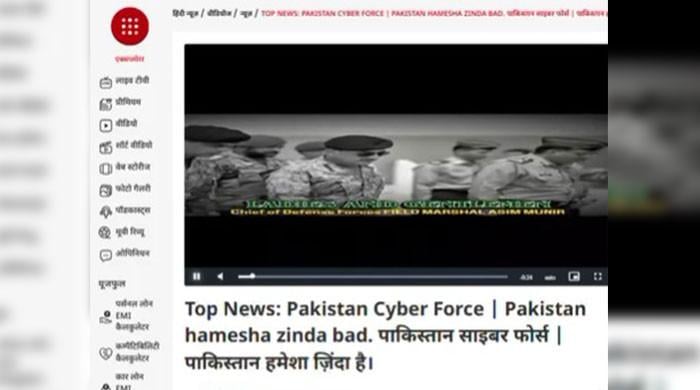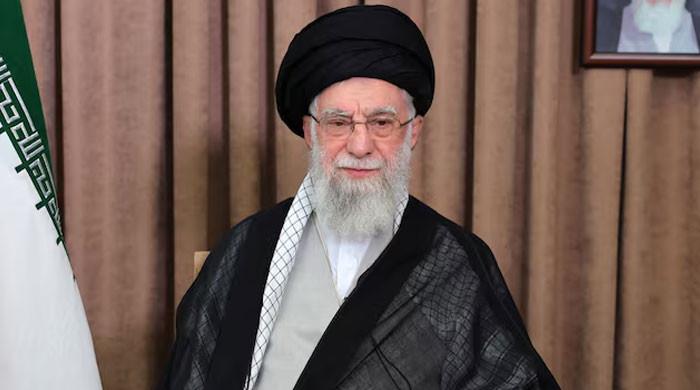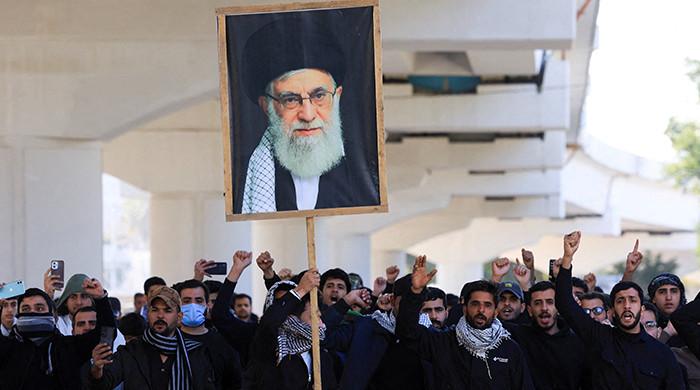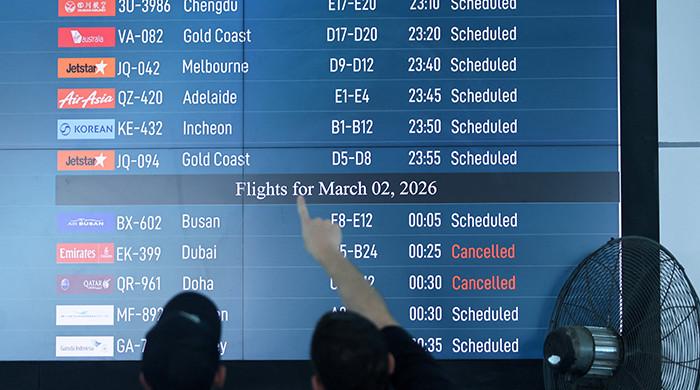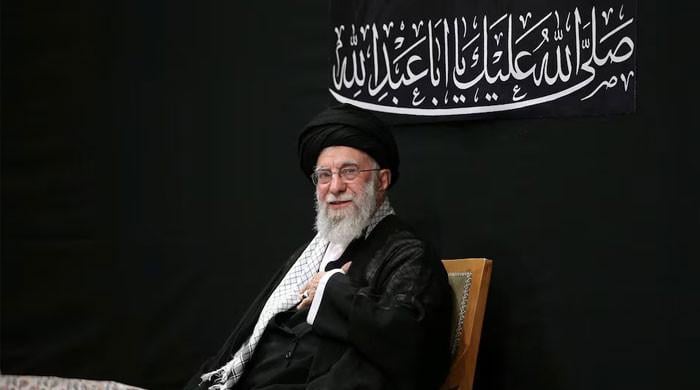China fires missiles near Taiwan in drills after Pelosi visit
China holds military exercises after US official visits Taiwan
August 04, 2022
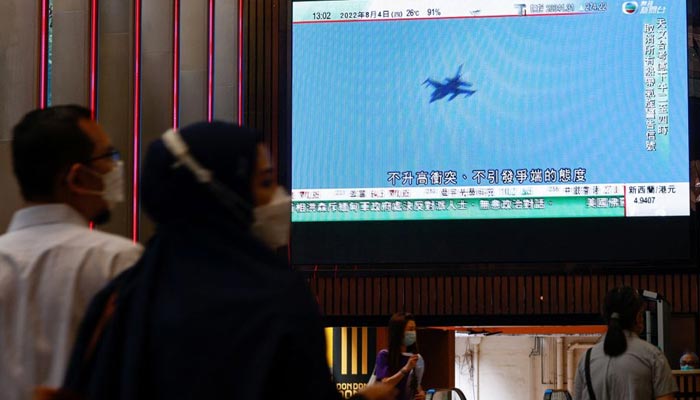
- China holds military exercises after US official visits Taiwan.
- Taiwan says various government websites hacked.
- China angry at US and Taiwan, calls drills internal matter.
TAIPEI: China fired multiple missiles near Taiwan on Thursday in its biggest ever military drills in the Taiwan Strait, a day after US House of Representatives Speaker Nancy Pelosi visited the self-ruled island.
The exercises began at midday and included live-firing waters to the north, south and east of Taiwan, which Beijing claims as its own. They brought volatility in the area to its worst in a quarter century.
China’s military said at around 3:30pm (0730 GMT) it had completed multiple firings of conventional missiles in waters off east Taiwan as part of planned exercises in six different zones set to run until noon on Sunday.
Taiwan’s defence ministry said 11 Chinese Dongfeng ballistic missiles had been fired in waters around the island. The last time that happened was in 1996.
Taiwan officials said the drills violated United Nations rules, invaded its space and threatened free air and sea navigation. It has been self-ruled since 1949, when Mao Zedong’s communists took power in Beijing after defeating Chiang Kai-shek’s Kuomintang (KMT) nationalists in a civil war, prompting the KMT-led government to retreat to the island.
Pelosi’s unannounced visit defied warnings from China.
Before Thursday’s drills officially began, Chinese navy ships and military aircraft briefly crossed the Taiwan Strait median line several times in the morning, a Taiwanese source briefed on the matter told Reuters.
By midday, warships from both sides remained in the area and in close proximity. Taiwan scrambled jets and deployed missile systems to track multiple Chinese aircraft crossing the line.
“They flew in and then flew out, again and again. They continue to harass us,” the Taiwanese source said.
China, which has long said it reserves the right to take Taiwan by force, says its differences with the island are an internal affair.
“Our punishment of pro-Taiwan independence diehards, external forces is reasonable, lawful,” China’s Beijing-based Taiwan Affairs Office said.
In Taiwan, life was largely normal despite worries that Beijing may even fire a missile over the main island as North Korea did over Japan’s northern island of Hokkaido in 2017.
“When China says it wants to annex Taiwan by force, they have actually said that for quite a while,” said Chen Ming-cheng, a 38-year-old realtor. “From my personal understanding, they are trying to deflect public anger, the anger of their own people, and turn it onto Taiwan.”
Taiwan said that the websites of its defence ministry, foreign ministry and presidential office were attacked by hackers, and warned of coming “psychological warfare”.
'Comrade Pelosi'
Chinese Foreign Minister Wang Yi called Pelosi’s visit to Taiwan a “manic, irresponsible and highly irrational” act, state broadcaster CCTV reported.
Wang, speaking at a meeting of Southeast Asian foreign ministers in Cambodia, said China had made the utmost diplomatic effort to avert crisis but would never let its core interests be hurt.
Unusually, the drills in six areas around Taiwan were announced with a locator map circulated by China’s official Xinhua news agency - a factor that for some analysts illustrates playing to both domestic and foreign audiences.
In Beijing, security in the area around the US Embassy remained unusually tight though there were no signs of significant protests.
“I think this (Pelosi’s visit) is a good thing,” said a man surnamed Zhao. “It gives us an opportunity to surround Taiwan, then to use this opportunity to take Taiwan by force. I think we should thank Comrade Pelosi.”
Pelosi, the highest-level US visitor to Taiwan in 25 years, praised its democracy and pledged American solidarity during her brief stopover. Chinese anger could not stop world leaders from travelling there, she said.
China summoned the US ambassador in Beijing in protest and halted several agricultural imports from Taiwan.
“Our delegation came to Taiwan to make unequivocally clear that we will not abandon Taiwan,” Pelosi told Taiwan’s President Tsai Ing-wen, whom Beijing suspects of pushing for formal independence - a red line for China.
The United States and the foreign ministers of the Group of Seven nations warned China against using Pelosi’s visit as a pretext for military action against Taiwan.
“From where have they received such a prerogative? ... To shield the infringer of rights and to accuse their defenders - how inexplicable!” responded Chinese Foreign Minister Wang Yi.
The United States has no official diplomatic relations with Taiwan but is bound by US law to provide it with the means to defend itself.
China views visits by US officials to Taiwan as sending an encouraging signal to the pro-independence camp on the island. Taiwan rejects China’s sovereignty claims, saying only Taiwanese people can decide their future.




